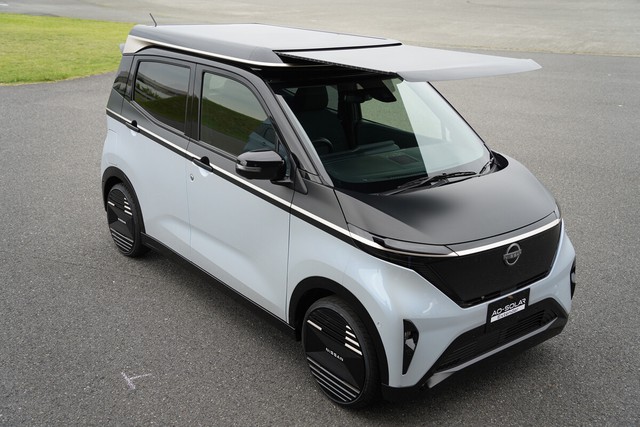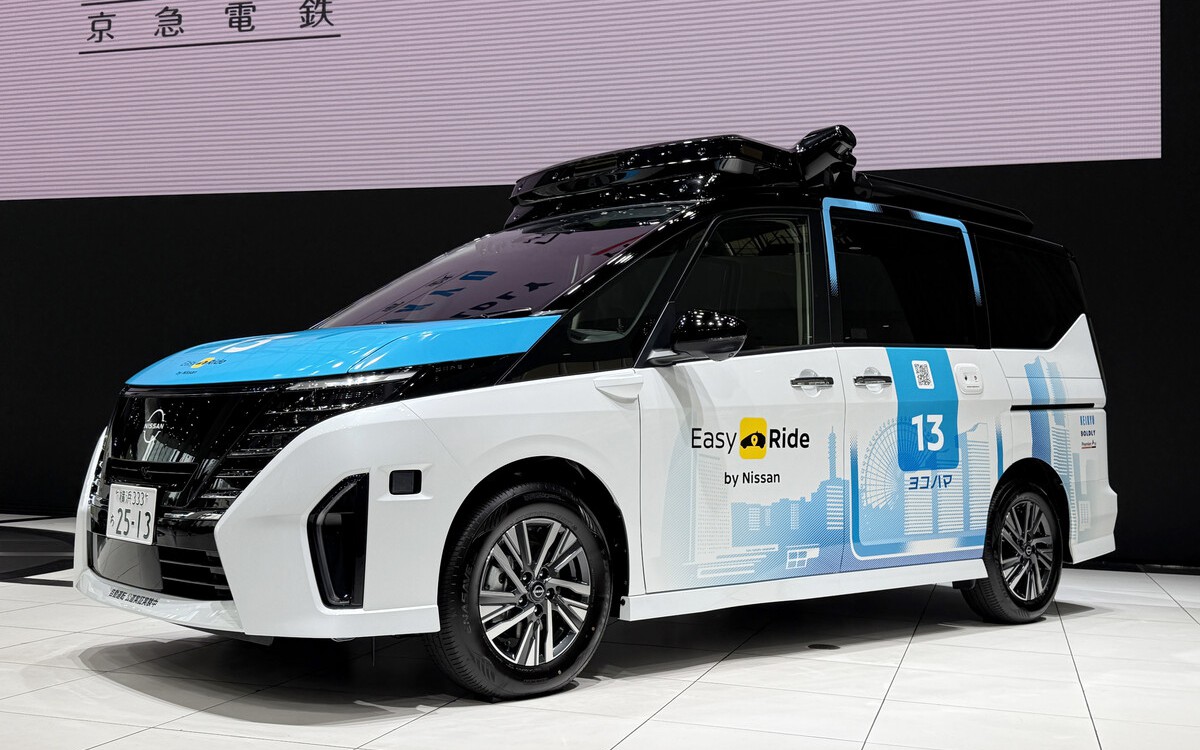
Nissan's solar-powered electric minivehicle prototype in Yokosuka, Kanagawa Prefecture, south of Tokyo, Japan on October 15, 2025. Photo: Jiji Press
The prototype, based on the Japanese automaker's Sakura electric minivehicle, has a roof-mounted solar panel.
When parked, an additional panel extends forward from storage, boosting power generation capacity by more than 60 pct.
If the system generates enough electricity to provide an annual driving range of up to 3,000 kilometers, the vehicle can eliminate the need for grid-based charging if it is used mainly for short-distance driving including for commuting or shopping, Nissan said.
"We want to make a car that needs neither gasoline nor (grid-based) charging," said Junichi Inoue, who leads the project.
While most research on solar-powered electric vehicles focuses on enhancing the power-generation efficiency of compact panels, Inoue said "such an approach raises (vehicle) prices."
Nissan's prototype instead increases the total panel area to keep the price down while maintaining sufficient output.
The Japan Mobility Show will be open to the public from October 31 to November 9 at the Tokyo Big Sight convention center, where the prototype will be on display in a section featuring future mobility concepts.




Max: 1500 characters
There are no comments yet. Be the first to comment.